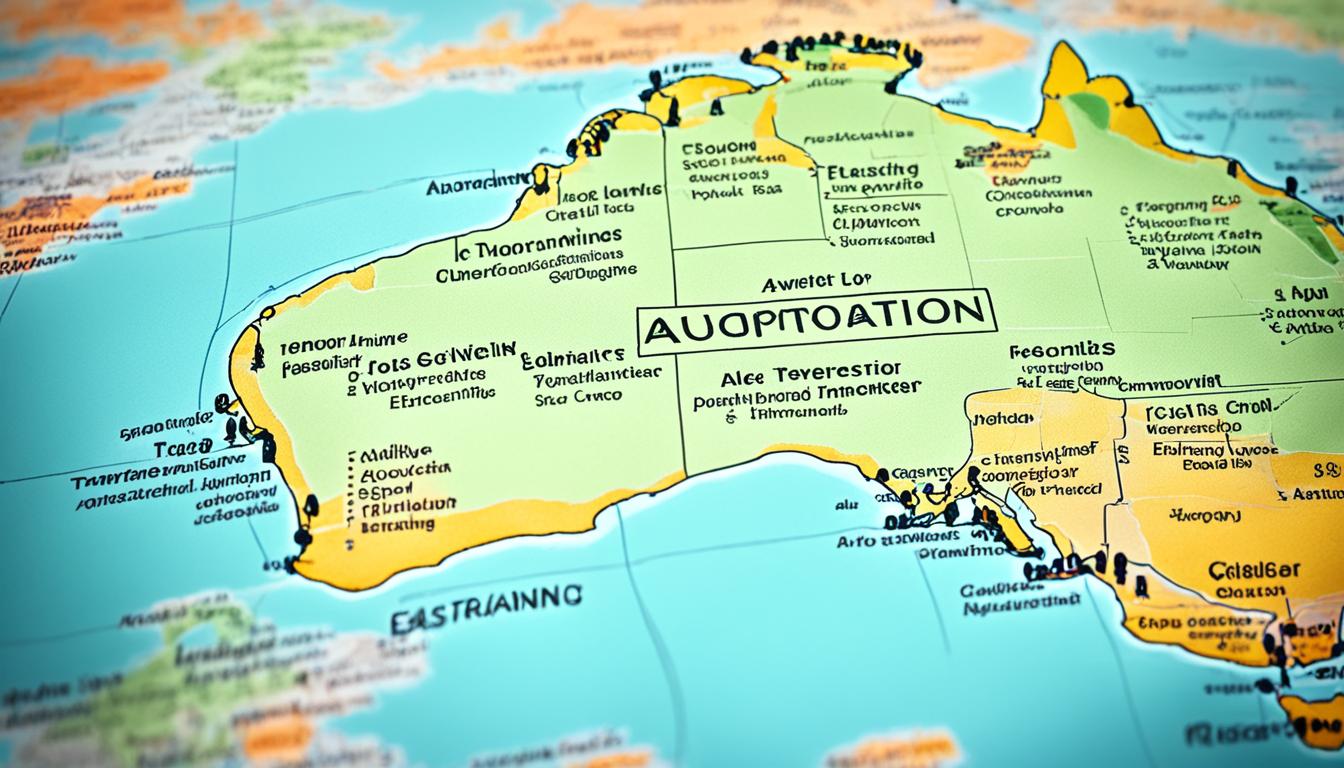
Traveling during pregnancy is an exciting time, but it’s important to prioritize your safety and well-being. One essential aspect to consider is obtaining the right travel insurance coverage. While there may not be a specific insurance option exclusively for pregnant individuals, choosing a travel insurance plan that includes coverage for trip cancellation and interruption, as well as emergency medical and evacuation costs, is crucial.
When it comes to travel insurance when pregnant, there are several factors to keep in mind. Firstly, consider the amount of nonrefundable trip costs that need to be protected. Additionally, the destination of your travel plays a role in determining the type of coverage you’ll need. It’s also important to review your existing coverage from credit cards or health insurance providers to identify any gaps that may need to be filled.
By selecting a comprehensive travel insurance plan, you can ensure peace of mind and financial protection throughout your journey. Whether you’re planning a domestic trip or international travel during pregnancy, investing in the right coverage will safeguard you against unexpected events and medical emergencies.
Key Takeaways:
- Choose a travel insurance plan that includes coverage for trip cancellation, interruption, emergency medical expenses, and evacuation.
- Consider the nonrefundable trip costs and the destination of your travel when selecting insurance coverage.
- Evaluate your existing coverage from credit cards or health insurance providers to identify any gaps.
- For international travel during pregnancy, consider purchasing travel medical insurance for comprehensive coverage.
- Consult with healthcare providers and understand airline rules and restrictions for pregnant travelers.
Trip Cancellation or Interruption Due to Pregnancy
When it comes to travel insurance, trip cancellation or interruption due to pregnancy is a common concern for many expectant travelers. While most travel insurance policies offer reimbursement for nonrefundable travel costs in certain situations, normal pregnancy is typically not considered a valid reason for trip cancellation if you were aware of your pregnancy at the time of purchasing the insurance. However, if you discover your pregnancy after purchasing the insurance and it leads to the need to cancel the trip, there may be a possibility of reimbursement.
It is important to note that providing evidence that the pregnancy was discovered after the policy was purchased is crucial for reimbursement.
In such cases, contacting your travel insurance provider and informing them about your situation is the first step. They will guide you through the process and provide you with the necessary information on what documentation is required to support your claim. This may include medical records or a letter from your healthcare provider confirming the timing of your pregnancy discovery.
In any case, it is always advisable to carefully review the terms and conditions of your travel insurance policy to understand the coverage and limitations specific to trip cancellation or interruption due to pregnancy. Each insurance provider may have slightly different policies, so it is important to be well-informed and prepared.
Trip Cancellation or Interruption Due to Complications of Pregnancy
If you are a pregnant traveler and experience complications during your pregnancy that could affect your ability to travel, it’s crucial to understand if your travel insurance covers trip cancellation or interruption in such cases. Some specific complications, like gestational diabetes, preeclampsia, hyperemesis gravidarum, or miscarriage, may be eligible for coverage. However, it’s important to note that coverage usually relies on a doctor’s advice not to travel due to the diagnosed condition.
When complications arise during pregnancy, they can significantly impact your health and travel plans. Whether it’s a sudden need to cancel your trip or interrupt it midway, having travel insurance can provide the necessary financial protection and peace of mind.
Eligible Complications for Coverage:
Here are some common complications during pregnancy that may be covered by travel insurance:
| Complication | Eligibility for Coverage |
|---|---|
| Gestational Diabetes | May be eligible for coverage if it requires medical treatment or impedes travel |
| Preeclampsia | May be eligible for coverage if it poses a risk to your health or the health of your baby |
| Hyperemesis Gravidarum | May be eligible for coverage if it necessitates medical intervention or affects your ability to travel |
| Miscarriage | May be eligible for coverage if it requires medical attention and affects your travel plans |
It’s important to review your travel insurance policy carefully to understand the specific terms and conditions regarding complications of pregnancy. Documentation from your healthcare provider may be required to support your claim for trip cancellation or interruption due to these covered complications.
Remember, when it comes to travel during pregnancy, being prepared with comprehensive travel insurance that includes coverage for complications is key to managing unforeseen circumstances and protecting your investment.
Medical Coverage for Pregnant Travelers
While regular health insurance may be sufficient for domestic travel during pregnancy, it is unlikely to provide coverage for medical expenses incurred while traveling internationally. Therefore, pregnant travelers planning to go abroad should consider purchasing travel medical insurance. This secondary insurance can provide coverage for medical expenses that are not covered by the traveler’s primary health insurer.
Prices for international medical insurance plans can be affordable, with options starting as low as $14 for coverage up to $50,000. It is important to compare different insurance plans to find the one that suits your specific needs and budget.
Travel medical insurance ensures that you have access to quality medical care and financial protection while traveling internationally. It can cover expenses such as hospitalization, doctor visits, prescription medications, and emergency medical evacuation.
| Benefits of Travel Medical Insurance | Travel Medical Insurance Coverage |
|---|---|
| 1. Coverage for medical expenses | ✔ |
| 2. Emergency medical evacuation | ✔ |
| 3. Hospitalization and doctor visits | ✔ |
| 4. Prescription medications | ✔ |
With travel medical insurance, you can have peace of mind knowing that you are protected against unexpected medical expenses during your pregnancy and can focus on enjoying your trip. Remember to read the policy carefully and understand the coverage, limitations, and exclusions.
Emergency Medical Evacuation Due to Pregnancy
When it comes to traveling during pregnancy, unexpected medical emergencies can occur, especially when venturing into remote areas. In such scenarios, having coverage for emergency medical evacuation becomes crucial. This ensures that you have access to prompt and specialized medical care, even if it means transportation via helicopter or other emergency means.
While some credit cards may offer automatic emergency medical evacuation coverage, it is essential to verify whether your chosen travel insurance plan includes this vital provision before making a purchase. Having comprehensive coverage for emergency medical evacuation can save you from incurring substantial financial burdens, particularly in situations where immediate evacuation is necessary for the well-being of both you and your unborn child.
Travel Insurance Coverage for Emergency Evacuation
The availability of emergency medical evacuation coverage varies across different travel insurance plans. It is crucial to examine the policy terms and conditions to determine the extent of coverage provided specifically for pregnancy-related emergencies. Look for travel insurance policies that explicitly mention emergency medical evacuation due to pregnancy as a covered contingency.
“In the event of a pregnancy-related medical emergency, having travel insurance coverage for emergency evacuation ensures prompt access to specialized medical care and transportation.”
To help you make an informed decision, here is a comparison table showcasing renowned travel insurance providers offering coverage for emergency medical evacuation due to pregnancy:
| Travel Insurance Provider | Emergency Medical Evacuation Coverage |
|---|---|
| Travel Guard | Includes emergency medical evacuation due to pregnancy |
| Travelex | Provides coverage for emergency evacuation related to pregnancy-related complications |
| Nationwide | Offers emergency medical evacuation coverage for pregnant travelers |
Remember, securing travel insurance coverage for emergency medical evacuation due to pregnancy ensures peace of mind, allowing you to prioritize your health and safety while embarking on exciting journeys.
Where to Buy Insurance for Traveling While Pregnant
When it comes to purchasing travel insurance for your trip while pregnant, there are several options to consider. Different travel insurance companies offer various plans with varying coverage for pregnant travelers. To ensure you make the right choice for your needs, it is essential to compare plans from different providers and carefully review what is covered, as well as the deductibles.
Some reputable travel insurance companies that offer plans specifically tailored for pregnant travelers include:
- Travel Guard
- Travelex
- Nationwide
These companies provide a range of options that may be better suited for pregnant travelers compared to others. By comparison shopping and understanding the coverage and deductible limits, you can select the most suitable insurance for your travel during pregnancy.

| Travel Insurance Company | Coverage Options | Deductibles | Price Range |
|---|---|---|---|
| Travel Guard | Coverage for trip cancellation, emergency medical expenses, and evacuation | Varies depending on the plan | $50 – $150+ |
| Travelex | Coverage for trip cancellation, emergency medical expenses, and evacuation | Varies depending on the plan | $75 – $200+ |
| Nationwide | Coverage for trip cancellation, emergency medical expenses, and evacuation | Varies depending on the plan | $60 – $180+ |
Before purchasing travel insurance, it is crucial to carefully review the coverage details, particularly the deductibles. Additionally, make sure to read the policy terms and conditions to fully understand the terms of the insurance. By taking the time to compare options and review coverage details, you can make an informed decision and have peace of mind during your travels while pregnant.
Pregnancy Travel Insurance Recap
In summary, when it comes to travel insurance for pregnancy, the need for coverage may vary depending on the nature of your trip. If you have fully refundable travel plans or are only traveling domestically, purchasing specific pregnancy travel insurance may not be necessary.
However, it is crucial to assess the existing coverage provided by your health insurance and credit cards before making a decision. Consider whether your current plans offer coverage for trip cancellation or interruption, as well as emergency medical expenses and evacuation.
For pregnancy travelers embarking on international trips or with nonrefundable costs, it is highly recommended to purchase travel insurance that includes coverage for trip cancellation or interruption due to pregnancy-related reasons, as well as emergency medical and evacuation costs.
Understanding the policy terms, coverage details, and limitations is crucial to ensure that you have appropriate insurance coverage during your travels while pregnant. Take the time to review the policy and familiarize yourself with the intricacies to make an informed decision.
Key Considerations for Traveling While Pregnant
Traveling while pregnant requires careful planning and consideration. To ensure a safe and comfortable journey, here are key considerations and travel tips for pregnant women:
- Consult with Your Healthcare Provider: Before making any travel plans, consult with your healthcare provider to ensure that you are fit to travel during your pregnancy. Your doctor can provide personalized advice based on your unique circumstances.
- Understand Airline Rules: Different airlines have varying rules and restrictions for pregnant travelers. Familiarize yourself with these policies before booking your flight. Some airlines may require a medical certificate or have restrictions on traveling during the later stages of pregnancy.
- Pack Essentials for Comfort and Safety: Pack items that promote comfort and ensure your safety during travel. Consider essentials such as comfortable clothing and shoes, a pregnancy pillow for added support, snacks, water bottle, medication, and any necessary prenatal vitamins.
- Be Aware of Health Risks: Research and understand potential health risks at your destination. Some locations may have a higher prevalence of certain diseases or health hazards that could pose risks to pregnant women. Take necessary precautions, such as getting vaccinated or avoiding certain activities.
By considering these key factors and following these travel tips, you can have a safe and enjoyable journey while pregnant. Remember to prioritize your health and well-being throughout your trip.
Travel Essentials Packing List for Pregnant Women
| Essentials | Description |
|---|---|
| Pregnancy Pillow | A supportive pillow designed for pregnant women to help with sleep and maintain proper posture. |
| Comfortable Clothing | Loose and breathable clothing that accommodates your growing belly and provides comfort during travel. |
| Supportive Shoes | Comfortable shoes with good arch support to prevent foot discomfort or swelling. |
| Snacks | Healthy snacks to keep your energy levels up during the journey. |
| Water Bottle | A reusable water bottle to stay hydrated throughout your trip. |
| Medication | If you have any prescribed medication, ensure you pack an adequate supply for the duration of your trip. |
| Prenatal Vitamins | If you are taking prenatal vitamins, remember to pack them to maintain your regular routine. |
Common Airline Rules for Flying While Pregnant
When it comes to flying while pregnant, it’s important to be aware of the specific rules and restrictions set by each airline. Before booking your flight, take the time to check with the airline directly to ensure compliance with their policies. These rules are in place to prioritizes the safety and well-being of both the mother and the baby.
One common requirement among airlines is the need for a medical certificate within a specific timeframe before and after the due date. This certificate serves as documentation from your healthcare provider, confirming that you are fit to travel. Make sure to obtain this certificate in advance to avoid any last-minute complications.
Moreover, some airlines may impose restrictions on travel during the later stages of pregnancy. This is to minimize the risks associated with air travel and ensure the well-being of expectant mothers and their babies. The specific gestational age at which these restrictions apply may vary between airlines, so it’s crucial to be familiar with the policies in place.
By familiarizing yourself with the rules and restrictions set by each airline, you can plan your travel more effectively and ensure a smooth journey. Be proactive in checking the specific requirements and guidelines of the airline you’ll be flying with, and always consult with your healthcare provider to ensure your safety and comfort throughout the trip.
Airline Rules and Restrictions for Pregnant Travelers
| Airline | Medical Certificate Required | Restrictions on Travel |
|---|---|---|
| ExampleAir | Required, within 30 days of the expected due date | Not allowed after 36 weeks of pregnancy |
| SampleAir | Required, within 28 days of the expected due date | Not allowed after 34 weeks of pregnancy for domestic flights, and after 28 weeks of pregnancy for international flights |
| ModelAir | Required, within 35 days of the expected due date | Not allowed after 38 weeks of pregnancy |
Note: The table above provides examples of general rules and restrictions. Each airline may have its specific policies, so it’s important to verify the requirements with the airline you are traveling with.
Understanding and adhering to these airline rules can help ensure a safe and pleasant journey for pregnant travelers. By preparing in advance, obtaining the necessary documentation, and following the guidelines set by the airline, you can enjoy a smooth flight while prioritizing your health and the health of your baby.
What if I Get Pregnant After Buying Travel Insurance?
If you find out that you’re pregnant after purchasing travel insurance, it’s important to understand the coverage provided by your policy. While some plans may offer coverage for unexpected pregnancies that occur after the policy is purchased, it’s crucial to review the terms and conditions to confirm this.
When notifying your insurance provider about your pregnancy, be prepared to provide proper documentation, such as medical records, to verify the timing of the pregnancy. This documentation will help support your claim for coverage for unexpected pregnancies.
If you have any questions or concerns about the coverage provided for unexpected pregnancies, it’s recommended to contact your insurance provider directly. They will be able to clarify any uncertainties and provide guidance on how to proceed.
Coverage for Unexpected Pregnancies
| Insurance Provider | Coverage for Unexpected Pregnancies? |
|---|---|
| Travel Guard | Yes |
| Travelex | No |
| Nationwide | Yes |
Review the table above to see whether some popular insurance providers offer coverage for unexpected pregnancies. However, keep in mind that coverage can vary between plans offered by these providers, so it’s essential to carefully read the policy documents and consult with your insurance provider to fully understand your coverage options.
Key Considerations for Traveling While Pregnant
When you’re pregnant and planning a trip, there are several key considerations to keep in mind to ensure a safe and comfortable journey. By taking these factors into account, you can have a more enjoyable travel experience while prioritizing your well-being and the health of your baby.
1. Consult with Your Healthcare Provider
Before embarking on any travel during pregnancy, it is crucial to consult with your healthcare provider. This is especially important if you have any underlying medical conditions or complications. Your healthcare provider can offer guidance on whether it is safe for you to travel and provide any necessary precautions or recommendations.
2. Understand Airline Rules and Restrictions
Each airline has its own set of rules and restrictions for pregnant travelers. It’s essential to familiarize yourself with these policies before booking your flight. Some airlines may require a medical certificate from your healthcare provider, while others may have restrictions on travel during certain stages of pregnancy. Understanding these rules can help you plan your trip accordingly and avoid any unnecessary inconvenience.
3. Pack Comfort and Safety Essentials
When traveling while pregnant, it’s essential to pack items that prioritize your comfort and safety. These may include loose-fitting clothing, comfortable shoes, compression socks to prevent swelling, and any necessary medications or medical supplies. Additionally, don’t forget to bring a well-stocked travel kit with essentials such as snacks, water, and hygiene products to stay comfortable throughout your journey.
4. Be Aware of Potential Health Risks
Research and be aware of any potential health risks at your destination. Certain locations may have increased risks of infectious diseases, extreme climates, or limited medical facilities. Stay informed about any necessary vaccinations, take precautions to protect yourself from mosquito bites or other hazards, and ensure there are adequate medical facilities available in case of emergencies.
5. Obtain Appropriate Travel Insurance Coverage
Being prepared with appropriate travel insurance coverage is crucial for pregnant travelers. Look for insurance plans that include coverage for trip cancellation or interruption, emergency medical expenses, and medical evacuation. This coverage can offer financial protection and peace of mind in case of unexpected circumstances or medical emergencies during your trip. Compare different insurance providers and carefully review the policy terms, coverage, and deductibles to find the best fit for your travel needs.
By considering these key factors and planning ahead, you can make your travel experience while pregnant safer and more enjoyable. Remember to prioritize your well-being, consult with your healthcare provider, and be prepared for any unforeseen situations that may arise. With the right precautions and preparation, you can embark on your journey with confidence and peace of mind.
| Key Considerations for Traveling While Pregnant |
|---|
| Consult with Your Healthcare Provider |
| Understand Airline Rules and Restrictions |
| Pack Comfort and Safety Essentials |
| Be Aware of Potential Health Risks |
| Obtain Appropriate Travel Insurance Coverage |

Travel Insurance and Childbirth
When it comes to travel insurance, it’s important to understand what is covered and what is not. In general, travel insurance does not cover the cost of childbirth. However, there are certain situations where emergency medical expenses related to complications during delivery while traveling may be covered.
It is crucial to carefully read the policy details to determine the coverage, limitations, and exclusions specific to childbirth. While the cost of routine childbirth is typically not covered, emergency medical expenses resulting from unexpected complications may be eligible for coverage. Examples of complications that may be covered include preterm labor, premature birth, or other unforeseen medical emergencies.
It’s important to note that coverage for childbirth during travel can vary depending on the travel insurance plan. Some plans may have specific exclusions or limitations related to childbirth, so it is essential to review the policy documents and contact the insurance provider for clarification if needed.
Attending the childbirth of a family member may be considered a valid reason for trip cancellation, depending on the specific insurance plan. If you need to cancel your trip due to the imminent birth of a family member, it’s recommended to check the policy terms and conditions to understand if this scenario is covered.
| Coverage | Description |
|---|---|
| Emergency Medical Expenses | Coverage for emergency medical expenses related to complications during childbirth |
| Routine Childbirth Expenses | Generally not covered by travel insurance |
| Attending Family Member’s Childbirth | May be considered a valid reason for trip cancellation, depending on the insurance plan |
It’s essential to remember that travel insurance is designed to provide coverage for unexpected events and emergencies that may occur during travel. While it may not cover the cost of childbirth, having travel insurance that includes emergency medical coverage can offer peace of mind and financial protection in case of unforeseen complications or emergencies related to childbirth during your trip.
Things to Consider When Traveling While Pregnant
Traveling while pregnant requires careful planning and consideration. Taking certain precautions can help ensure a safe and comfortable journey for both you and your baby. Here are some key tips and factors to keep in mind:
- Stay hydrated: Drink plenty of water throughout your trip to avoid dehydration, especially during flights or in hot climates.
- Eat healthy: Pack nutritious snacks and meals to maintain a balanced diet while traveling. Avoid consuming unpasteurized or undercooked foods that may pose a risk of foodborne illnesses.
- Wear comfortable clothing and shoes: Choose loose-fitting and breathable clothing that allows for ease of movement. Opt for comfortable shoes that provide adequate support.
- Avoid strenuous activities: Engaging in strenuous physical activities, such as hiking or extreme sports, may not be advisable during pregnancy. Consult with your healthcare provider to determine which activities are safe for you.
- Take breaks and move around: During long flights or car rides, make sure to take regular breaks to stretch and move around. This can help prevent blood clots and reduce discomfort.
- Know the location of medical facilities: Research and identify the nearest medical facilities at your destination, including hospitals and clinics specializing in prenatal care. This information can be crucial in case of any unforeseen medical emergencies.
“Traveling during pregnancy requires careful attention to your health and comfort. By following these tips, you can ensure a safe and enjoyable journey.”
Conclusion
Traveling while pregnant can be an exciting experience, but it is essential to take the necessary precautions and considerations for a safe and comfortable journey. One of the most important aspects of traveling while pregnant is having the right travel insurance in place. By choosing a travel insurance policy that includes coverage for trip cancellation, emergency medical expenses, and evacuation, you can have peace of mind and financial protection throughout your journey.
Consultation with healthcare providers is another crucial step when traveling while pregnant. Your healthcare provider can provide specific advice based on your individual circumstances and ensure that you are prepared for any potential health risks or complications that may arise during your trip.
Understanding airline rules and regulations is also essential. Different airlines have different policies regarding pregnant travelers, including restrictions on travel during certain stages of pregnancy. It is important to familiarize yourself with these rules before booking your flight to ensure a smooth and hassle-free travel experience.
Lastly, when packing for your trip, don’t forget to include essential items for comfort and safety. This may include comfortable clothing and shoes, prenatal vitamins, necessary medications, and any other items recommended by your healthcare provider.
By following these guidelines and being well-prepared, you can embark on your journey while pregnant with confidence and security. Remember to choose the best travel insurance for pregnancy that suits your needs, consult with your healthcare provider, understand airline rules, and pack wisely. With these precautions in place, you can enjoy your travels while ensuring the safety and well-being of both you and your baby.





